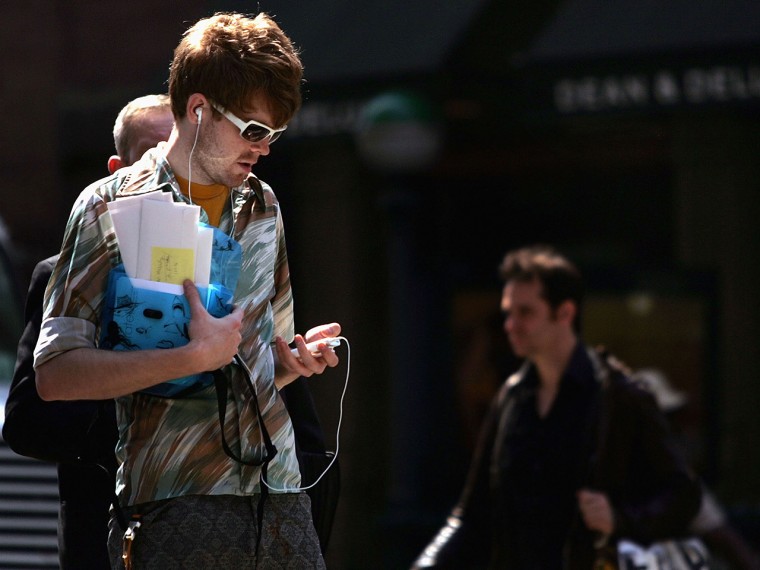
Got a little spring in your step? Feel as if you’re meandering down the sidewalk at a sluggish pace? Maybe you need to update your playlist. A new study has found that people quicken or slow their step based on the genres of music they listen to when walking.
“We are interested in how people synchronize to an external stimulus, such as music, because that can be very motivating for people to move. The attraction exerted by the music is called entrainment, and humans tend to sweep along with the flow of the music,” explains lead author Marc Leman, a research professor in the musicology department at the University of Ghent in Belgium, in an email.
”We show here for the first time that entrainment is also related to the physical strength of the movement, the movement vigor.”
Leman asked 18 adults, aged 22 to 51, to walk along a circular path while listening to 52 different genres of music. The music selections were divided into two 16-minute blocks with 29 genres in each; all the songs had a tempo of 130 beats per minute. When the music stopped, the subjects took a five-minute break and resumed walking when the second music block commenced. Sensors—which measured acceleration, angular acceleration, and the earth magnetic field—covered the subjects to record their speed and tempo. Later, subjects described the music, using “bipolar” words, such as good-bad, tender-aggressive, or slow-fast.
Most of the time, people synchronized their walking to the tempo; 88.7 percent of the time they had a tempo 130 steps per minute. But 9.2 percent of the time, they did not match the tempo. When people listened to music they perceived as being bad, aggressive, loud, or fast, they picked up the pace. What music caused such negative vibes? Not the likely culprits of death metal or punk rock, but rather the, um hostile, genre of electro-pop ('80s music must really get the blood boiling for some folks). When they listened to tender, slow, soft, and fluent music, how the participants classified reggae-jazz, the walkers slowed down.
The strong beats encourage a faster gait—people strode quicker when music emphasized the beat and this heavy throb also led to the negative connotations. When a song uses a weakened beat, swelling tone, or syncopation (off-beat notes), it causes people to walk with an unhurried, loping pace, Leman explains.
“Expression in audio has a direct impact on our movements. It happens at a subliminal level,” he adds.
Leman plans on using his findings to tailor music to improve people’s motivation and workouts (perhaps using the much loathed elctro-pop to get people moving faster).